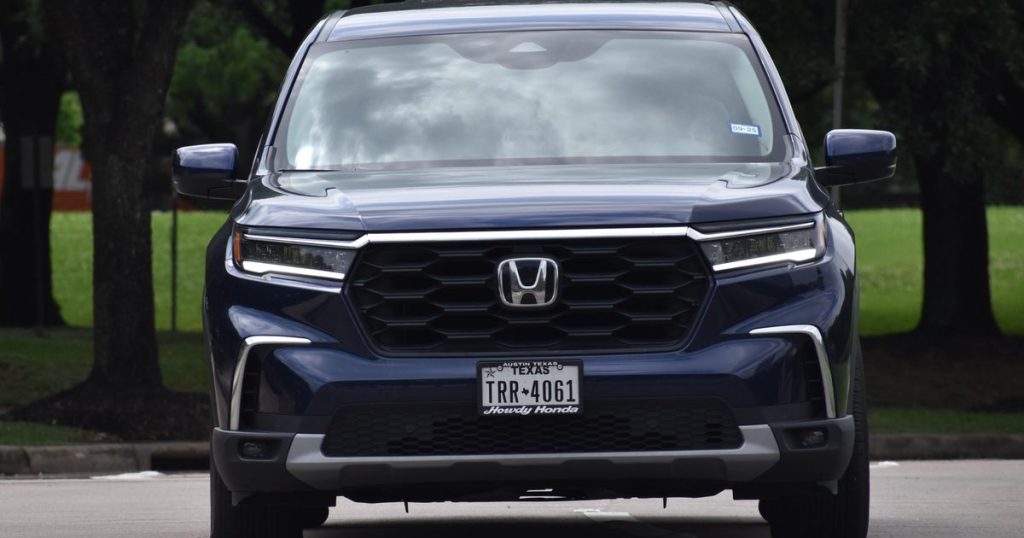Honda has announced a significant recall affecting over 259,000 vehicles in the United States due to potential defects in the brake pedal assembly, which could jeopardize driver safety. The National Highway Traffic Safety Administration (NHTSA) reported that the issue stems from improperly secured brake pedal pivot pins, enabling unwanted lateral movement of the pedal. Models affected include various Acura and Honda vehicles produced between 2021 and 2025.
| Article Subheadings |
|---|
| 1) Overview of the Recall |
| 2) Models Affected |
| 3) Safety Concerns |
| 4) Resolution Process for Owners |
| 5) Transition of Production Facilities |
Overview of the Recall
The recall was initiated after Honda detected defects in the brake pedal systems of several models. Specifically, the NHTSA identified that the brake pedal pivot pin was not properly secured during the manufacturing process. This defect could potentially allow the brake pedal to move side-to-side, impairing a driver’s ability to control the vehicle effectively.
Honda’s proactive measures underscore its commitment to safety and compliance with federal safety regulations. Affected vehicle owners will receive notifications detailing the recall and the necessary steps to rectify the issue. This announcement comes amid rising scrutiny of automotive safety practices, emphasizing the importance of maintaining rigorous quality assurance protocols in manufacturing.
Models Affected
The models included in this recall are primarily from Acura and Honda, specifically:
- 2021-2025 Acura TLX
- 2023-2025 Acura MDX
- 2023-2025 Honda Pilot
These models represent a wide segment of Honda’s vehicle offerings, with Acura targeting luxury buyers and Honda catering to a broader audience. The significant number of vehicles affected indicates the severity of the issue, prompting Honda to act swiftly in ensuring that owners are informed and able to address this critical safety concern.
Safety Concerns
The NHTSA has underscored the serious implications of the defective brake pedal assembly, warning that drivers may face increased risks of crashes or injuries if they cannot operate their vehicles safely. The report indicates that when the brake pedal is not functioning as intended, drivers might experience an abnormal sensation while engaging the brake, accompanied by warning lights signaling a malfunction.
This situation represents a pivotal concern for both consumers and the manufacturer, as underperformance in brake systems can lead to hazardous driving conditions. The implications of such defects are far-reaching, often leading to broader regulatory repercussions and damage to the brand’s reputation.
Resolution Process for Owners
Owners of the affected vehicles should expect to receive recall notifications via mail, advising them of the necessary corrective actions. Honda has established a streamlined process through which drivers can take their vehicles to authorized dealerships for a thorough inspection and necessary repairs. If repairs have been made prior to the recall announcement, owners are eligible for reimbursement.
This response illustrates Honda’s attempts to mitigate concerns and enhance customer trust by providing clear communication and financial support for previously incurred repair costs. Ensuring customer safety remains a priority, and the corrective processes are designed to minimize disruptions while enhancing vehicle reliability.
Transition of Production Facilities
One contributing factor to this recall was the recent transition of vehicle production from a U.S. facility to one located in Mexico. Honda implemented this move in November 2024 in an effort to bolster efficiency and resource management. However, during this transition, the production staff reportedly faced challenges with sufficient training, specifically in the critical process of securing brake pedal pivot pins.
The NHTSA detailed that the increase in staffing levels was intended to ensure a smooth continuation of production but ultimately led to lapses in safety protocol adherence. This incident emphasizes the need for continuous training and quality assurance checks, particularly during significant operational changes.
| No. | Key Points |
|---|---|
| 1 | Honda recalls over 259,000 vehicles in the U.S. due to defective brake pedal assemblies. |
| 2 | Affected models include the 2021-2025 Acura TLX, 2023-2025 Acura MDX, and 2023-2025 Honda Pilot. |
| 3 | The defect may pose risks of crashes or injuries due to compromised brake functionality. |
| 4 | Owners will be notified by mail and can seek repairs or reimbursement for prior repairs. |
| 5 | The recall’s root cause includes training gaps during a transition to a new production facility in Mexico. |
Summary
The recent recall by Honda highlights critical safety issues that can arise within the automotive industry. With over 259,000 vehicles impacted, the implications of the brake pedal defect underscore the necessity for stringent manufacturing protocols and training. As manufacturers adapt to evolving operational frameworks, maintaining quality and safety must remain at the forefront of production practices. Honda’s commitment to addressing these concerns and rectifying the defects reflects a broader industry trend toward prioritizing consumer safety and transparency.
Frequently Asked Questions
Question: What should affected owners do?
Owners of affected models should watch for notifications from Honda in the mail, advising them on the necessary actions to take, including bringing their vehicles to authorized dealers for inspection and repair.
Question: Can owners get refunds for previous repairs?
Yes, owners who incurred costs for repairs prior to the recall announcement are eligible for reimbursement, which Honda will outline in its official notifications.
Question: What caused the defect in the brake pedals?
The defect was attributed to a lack of proper training during the transition of production from a U.S. facility to one in Mexico, leading to improperly secured brake pedal pivot pins.


